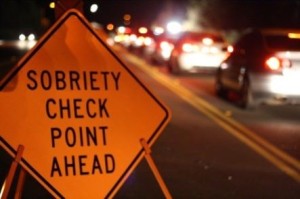 With the holiday season already upon us and parties adding up in the numbers, it is a guarantee that drinking will occur. This is not lost on anyone, let alone the police—so what is their answer? DUI checkpoints! If you’re traveling on any major roadway over the next few weeks, you are likely to come across one. Before that happens, take a moment to consider them: what do you actually know about DUI checkpoints?
With the holiday season already upon us and parties adding up in the numbers, it is a guarantee that drinking will occur. This is not lost on anyone, let alone the police—so what is their answer? DUI checkpoints! If you’re traveling on any major roadway over the next few weeks, you are likely to come across one. Before that happens, take a moment to consider them: what do you actually know about DUI checkpoints?
“Sobriety” checkpoints aren’t in violation to the US Constitution’s ban against unreasonable search and seizures, according to the Supreme Court, so long as police follow certain guidelines. Did you know that public notice has to be given before the checkpoint is set up; otherwise it is not a valid stop? This information needs to be published in the papers or through some kind of media outlet, though the exact location doesn’t have to be disclosed. If a checkpoint was not conducted according to the preset guidelines determined by the Supreme Court, any evidence gathered during the unauthorized stop can be suppressed.
The Guidelines:
- Only officers in supervisory positions can decide where and when to establish a checkpoint—this keeps law enforcement honest and deters them from indiscriminately enforcing sobriety tests.
- A DUI checkpoint needs to be highly visible so that drivers can easily see roadblocks, the area must be well lit.
- Warning devices should be employed to advise motorists that they are approaching a checkpoint, such signs that says why there is a stop, and flares or safety cones should also be used to make off lanes on the roadway. Marked patrol vehicles should be present with their flashing lights on, as well as uniformed officers.
- The police should only detain you long enough to determine whether you show signs of intoxication or impairment before letting you continue undeterred to the roadway.
- They also need to use an unbiased formula in deciding which drivers to stop, such as ever forth vehicle. This is meant to keep the police from singling people out on subjective criteria like appearances.
Knowledge is power, so now that you have more information, you’ll be better prepared should you come across one of these checkpoints over the next few weeks. In the event you do actually get caught with a DUI this holiday season, just remember I’m here for you. Give me, David Polsky, a call at (973)686-9787 or email me at Polskylegal@aol.com if you need help fighting a DUI charge.

 (973) 686-9787
(973) 686-9787 Totowa, NJ 07512
Totowa, NJ 07512 Menu
Menu





